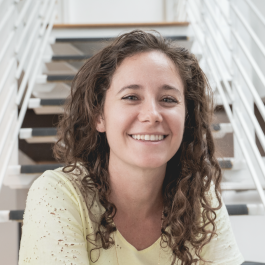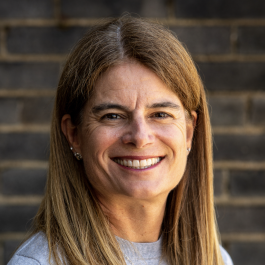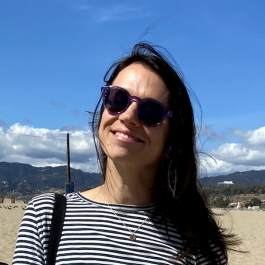The path companies can take in building their respective cultures, especially in a remote environment, is pretty open-ended.
But as leaders from five tech companies touched on when unpacking the subject with Built In NYC, there are definitely a few guiding themes that can anchor an approach.
One of the insights — among the others below — that leaps out in particular? Employee voice is an essential part of the process.
“People’s needs evolved throughout the year, which meant that, in order to keep building our culture, we had to emphasize a culture of listening,” Maven Clinic SVP of People Karsten Vagner said. “We created spaces for people to tell us what they were experiencing, what their needs were and what they were bringing to work each day.”
Stephanie Spiegel, vice president of people at Enigma, placed a similar emphasis on the voice of team members as the company built its remote culture.
“We started by asking our employees what they needed to feel supported and connected. We put together a working group and spoke with every single person at the company. The insights from those conversations shaped our efforts,” Spiegel said.
As the takeaways below underscore, ongoing change has shown leaders that they must approach the matter with care and consideration for the needs of their teams.
How did the pandemic and remote work change your understanding of culture-building within your company?
Last year revealed and heightened people’s various and unique needs: new hires, underrepresented groups, parents and people working remote for the first time — all of these folks experienced different challenges brought about by the pandemic. It’s been by listening to our employees about where they are each day — and not just in relation to their work to-do list — that we’ve been able to meet their needs and keep our culture strong during this challenging time.
How did you deliberately build upon your existing culture throughout 2020?
Maven has doubled as an organization in the past year, which means lots of new people. When folks join, we don’t talk about “culture fits,” we talk about “culture adds,” which means with each new colleague, our company gets stronger and our culture more dynamic and inclusive. We have been hiring remote-first as well as internationally and are proud of the depth and breadth of professional and lived experiences people bring to work every day at Maven.
On top of all the hiring, we reimagined how to keep things fun. We orchestrated virtual events to foster a sense of joy and community — not just for our employees, but for their families, partners and roommates as well, including weekly Coffeehouse Cabaret sessions with Broadway talent over Google Hangouts; virtual game nights; “Chopped”-style cooking challenges; Mother’s and Father’s Day celebrations with kids; a talent show and Halloween in April. Each event helped create spaces for us to build meaningful connections with each other while allowing everyone to bring their whole, authentic selves to work.
When folks join, we don't talk about ‘culture fits,’ we talk about ‘culture adds.’”
What lessons about company culture will you take forward beyond the end of the pandemic?
Culture doesn’t come about by leaders making decisions in a vacuum. It’s built by everyone, and it’s my job to make sure all employees feel empowered to contribute to our company culture.
I’ll give you an example. Amid 2020’s national reckoning around racial injustice, we asked our team about where they felt Maven could do more. And they responded. After receiving hundreds of suggestions and ideas, we established employee working groups on different components of equity and inclusion across all of our operations — from recruiting and promotions to the way our product is experienced by our users. Each working group had ownership of the 12-month roadmap, executive sponsorship and budget to really move the needle. This work included a companywide anti-racism initiative designed by employees and in partnership with our providers. The work has generated tangible results for our people and our greater community, and reinforced the notion that when employees lead, our whole organization benefits.
How did the pandemic and remote work change your understanding of culture-building within your company?
Beyond creating a fully remote-hybrid policy for our company back in the fall of 2020, we took a much more deliberate and creative approach to culture-building. Previously, we had put a lot of thought and purpose into the design of our NYC offices. While we always had a flexible work-from-home policy, the office was the beating heart of Enigma. We enjoyed the jungle of plants, the mediation room, the library and all the in-office events, but most importantly we enjoyed the way they brought us together. The office was the vessel that made culture-building organic.
After moving to a fully remote-hybrid model, we had to find new ways to build and maintain our unique culture. We started by asking our employees what they needed to feel supported and connected. We became deliberate about finding ways to connect beyond the flat surface of our screens and the four corners of our office.
How did you deliberately build upon your existing culture throughout 2020?
Over the past 18 months it’s been a challenge to recreate a sense of togetherness, but we hatched some creative ways to build our culture.
We launched our Enigma Haus program, live-work houses that we rented in week-long intervals for use by employees all across the country. We wanted to provide a safe way for vaccinated workers who were willing to be tested for Covid-19 to still get together while the office remained closed.
We hosted team retreats in Nashville, Tennessee, Asheville, North Carolina, and upstate New York. This smaller scale allowed for greater focus and collaboration, and it was the first time many of us had met one another outside of our screens during the pandemic. Also, we opened a Los Angeles office and created a generous office visit policy for anyone who wants to come visit.
While this strategy involves more logistics and more risk — in fact, we unfortunately had to cancel our company-wide retreat in New Orleans due to Delta concerns — we have always understood the value of being in person. I’m proud that we created the opportunities and supporting policies that allow for this new type of culture-building.
Culture building can’t be forced. It has to be and feel authentic.”
What lessons about company culture will you take forward beyond the end of the pandemic?
My background is in community building and I’ve always lived by the credo that you have to meet people where they are. We have all felt the psychological and emotional stress of the pandemic, and we all have different comfort levels around how to structure our lives in this changing environment.
We piloted a number of strategies to meet people where they are. After surveying the company to find where the gaps are in our benefits, we expanded our mental and physical health offerings. We now offer access to Spring Health, Carrot, Headspace and Aaptiv, and grant a $100 monthly health reimbursement that can be used for anything from healthy meals and weights to running shoes and massages.
Culture building can’t be forced. It has to be and feel authentic. Most importantly, it has to meet the evolving needs of your employees.
How did the pandemic and remote work change your understanding of culture-building within your company?
Prior to the pandemic, we were primarily an in-office culture. As a result of the pandemic, we looked deeper at how we needed to operate in an entirely virtual environment. We started by being very structured in our communication across the company through weekly town halls, manager meetings and team syncs. We also produced more surveys, Slack conversations and polls to get frequent feedback from Bluecorians on how they were feeling, what they were doing and what they needed to be successful. Being virtual also allowed us to reevaluate our policies, programs, perks and practices to ensure they were inclusive.
The pandemic certainly helped us realize culture wasn’t something created in the office. Rather, it was how we operated through our values, since they are guide posts for how we make decisions, communicate and operate as a company. They became ever more important and in particular we evaluated how we were living up to them. Ultimately, the shift to fully remote work during the pandemic increased our attention to diversity, equity, inclusion, belonging and the mental health of our team members.
How did you deliberately build upon your existing culture throughout 2020?
The pandemic put the entire company on a level playing field where we were all remote. It gave us an opportunity to step back and reevaluate everything: perks, benefits, company events, communication protocols and especially our values. One value that gained particular importance was “act with intention.” We definitely had to be more intentional in building our remote culture during 2020.
We took stock of everything globally: what worked, what didn’t and what needed to be tweaked. Caring about the whole employee is key — their personal life included, as that now played a huge role in their work. We focused on mental health and burnout. New remote perks were created. We formalized our DEI Working Group, increasing the focus and attention on establishing a diverse, equitable and inclusive environment. This also resulted in several employee resource groups being established. We also took an in-depth look at our values, evaluating what was serving us well, what was no longer necessary, what needed to be tweaked and what was missing. This resulted in us relaunching our values along with leadership principles across the company to hold us all to the same standard in living our values.
The pandemic certainly helped us realize culture wasn’t something created in the office.”
What lessons about company culture will you take forward beyond the end of the pandemic?
Pre-pandemic, the majority of the company came into the NYC office with only a few remote team members in the U.S., as well as our team in India. The pandemic gave us a greater appreciation for creating an environment that was globally inclusive and remote-first where everyone is treated the same. With Zoom, everyone’s box is the same size. We are intentional about the decisions that impact our team members including benefits, perks, team events, communications and more. Key tenets moving us forward now are that we measure on outcomes, not face time, and we are aggressively authentic to our values.
How did the pandemic and remote work change your understanding of culture-building within your company?
Our focus has always been employee engagement. The company started right when New York City was shutting down during the first wave. Without a rule book, I wanted to make sure our asynchronous communication remained high so that the employees didn’t feel lonely. What it taught me is how important it is to understand your early employees at a personal level, not just a professional one. The founding team sets the culture; therefore, having a handful of people who enjoy interaction and communication in the same way allowed us to hire and grow the team while looking for the same qualities.

How did you deliberately build upon your existing culture throughout 2020?
Given all the uncertainty around hiring, we had to think outside the box in order to stand out and convince people from Fortune 500 companies to join an early-stage startup like us. Luckily, we had raised a good amount of financing, which allowed us to quickly offer competitive benefits like 401(k), competitive salaries, equity and health benefits in order to show our operating standard and make others feel comfortable. Early on, I included the company’s investors and advisors in the hiring process so that new and current team members saw how tightly knit the team is and how we think about culture.
I learned how important it is to constantly be sharing and executing the company’s plans with everyone in order to better help them understand where we are going.”
What lessons about company culture will you take forward beyond the end of the pandemic?
You can never communicate enough. Whether it be in writing, recorded videos about culture or live meetings, the key to leadership is repetition. Oftentimes, due to lack of face time, employees forget about their company’s culture and vision. I learned how important it is to constantly be sharing and executing the company’s plans with everyone in order to better help them understand where we are going.
How did the pandemic and remote work change your understanding of culture-building within your company?
For me, remote work makes developing a company and team culture a much more deliberate endeavor. With everyone at home, you miss out on a lot of the little interactions and encounters that help you get to know your colleagues in a more nuanced and layered way. You can build culture remotely, but definitely do not assume it will just happen organically.
How did you deliberately build upon your existing culture throughout 2020?
With so much growth happening in a remote environment, it’s been really important to create opportunities for people to learn more about each other and their lives outside of work. At Medly, we have Slack channels for people to chat about different subjects, such as what they’re cooking, the music they like and their fitness routines. We even created a Medly Run Club on Strava.
On the design team in particular, I also like to start each meeting with an ice breaker. This has been a fun, and often very funny way to learn about each other. “What is one of your biggest pet peeves?” and “What would you be doing if you weren’t a designer?” had some very interesting answers.
You can build culture remotely but definitely do not assume it will just happen organically.”
What lessons about company culture will you take forward beyond the end of the pandemic?
Don’t expect it to just happen. It takes a concerted effort to get to know your team and create culture. You have to create space and budget the time.













